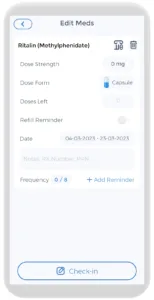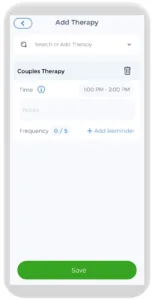
Do you find yourself feeling overwhelmed, frustrated, and exhausted by your partner’s ADHD in your relationship and life? You’re not alone. ADHD, or Attention Deficit Hyperactivity Disorder, is a neurodevelopmental disorder that affects millions of adults worldwide.
ADHD can affect relationships in many ways, from communication difficulties and emotional dysregulation to forgetfulness and impulsivity. These challenges can be particularly pronounced for spouses of individuals with ADHD, who may feel unsupported, neglected, and burnt out.
In this blog post, we’ll explore all the things related to the basics of ADHD, including its genetic and environmental factors, symptoms, and management. We’ll then delve into ADHD spouse burnout, including what it is, why it occurs, and how it can affect relationships and marriage. Finally, we’ll provide practical tips and coping strategies for managing ADHD spouse burnout and strengthening your relationship. Whether you’re newly diagnosed with ADHD or have experienced it your entire life, this article will provide valuable insights to be aware of about managing the challenges of ADHD and building a healthy, fulfilling relationship and life with your spouse.[1][2][3][4][5]
Attention Deficit Hyperactivity Disorder: The Basics
What is Attention Deficit Hyperactivity Disorder?
People of all ages are susceptible to attention deficit hyperactivity disorder (ADHD), a neurodevelopmental condition. These traits of the ADHD brain, which include chronic inattention, hyperactivity, and impulsivity, can seriously impede social, academic, and vocational functioning. Around 6-9% of children worldwide are affected by ADHD, which is one of the most prevalent childhood diseases. Many adults also have ADHD.
The exact cause of ADHD is not yet known, but research suggests that a combination of genetic and environmental factors in someone’s life contributes to an ADHD brain. ADHD is a highly heritable disorder, with up to 80% of the risk attributable to genetic factors. However, environmental factors, such as prenatal exposure to alcohol or tobacco, premature birth, and low birth weight, can also increase the risk of developing ADHD.
ADHD affects the brain’s executive functioning, which involves the ability to plan, organize, prioritize, and carry out tasks. Neuroimaging studies have shown that individuals with ADHD have differences in brain structure and function compared to neurotypical adults.
How Does ADHD Develop?
Combination of Genetic and Environmental Factors
It is believed that a person’s environment and genetic makeup contribute to the development of ADHD. According to research, genetic variables account for roughly 70–80% of the diversity in ADHD, making it highly heritable. Environmental aspects, such as maternal stress during pregnancy and prenatal exposure to toxins, have also been connected to a higher risk of ADHD.
Heritability of ADHD
ADHD is highly heritable, with up to 80% of the risk attributable to genetic factors. The specific genes involved in ADHD are not yet fully understood, but research suggests that multiple genes are involved, each of which contributes a small amount to the risk of a child developing ADHD.
Environmental Risk Factors
In addition to genetics, environmental factors can also contribute to the development of ADHD. Prenatal exposure to toxins such as lead, tobacco, and alcohol has been linked to an increased risk of ADHD. Maternal stress during pregnancy has also been associated with an increased risk of ADHD in children. Low birth weight and premature birth have also been identified as potential risk factors for ADHD.
ADHD Diagnosis
To diagnose ADHD, a thorough evaluation that includes a physical examination, a clinical interview, and standardized rating scales filled out by the patient, carers, teachers, and mental health professionals is carried out. The Diagnostic and Statistical Manual of Mental Disorders, Fifth Edition (DSM-5) criteria are suggested by the American Academy of Pediatrics (AAP) for the diagnosis of ADHD.
The DSM-5 outlines three subtypes of ADHD: inattentive, hyperactive-impulsive, and combined. For an ADHD diagnosis, a patient must exhibit at least six symptoms of inattention, hyperactivity, or impulsivity that are present for at least six months and cause impairment in two or more settings, such as home and school. The symptoms must also be inconsistent with the individual’s developmental level and interfere with their functioning. Rating scales are often used to gather information about the individual’s symptoms and functioning.
It’s important to rule out other medical or psychiatric conditions that may present with symptoms similar to adult ADHD. Adult ADHD diagnosis may be challenging because the symptoms may have been present since childhood without the patient being aware. Additionally, adults may develop coping strategies that mask the symptoms of adult ADHD, making them seem like neurotypical people.

ADHD Symptoms
ADHD behavior is characterized by a persistent pattern of inattention and/or hyperactivity-impulsivity that interferes with functioning or development, which most people do not experience. Untreated ADHD symptoms can vary from person to person and survival skills can be impacted by the ADHD effect. The DSM-5 outlines two core symptom domains of ADHD: inattention and hyperactivity-impulsivity.
Inattention symptoms of untreated ADHD refer to difficulties staying focused on tasks or activities. Examples include staying on task at school for children or at work for adults. Having difficulties being aware of details, following instructions, and staying organized in life are other examples. Examples of hyperactivity-impulsivity symptoms of untreated ADHD include a need to fidget or squirm, difficulty staging seats, difficulty engaging in quiet activities like reading or playing quietly or having excessive energy. These can all happen without the child or adult even being aware.
While not all individuals may experience the same ADHD symptoms, they can have a significant impact on an individual’s life, especially in poorly managed ADHD or untreated ADHD. These symptoms may cause difficulty in social, academic, and occupational settings. It is easy to see how these symptoms can affect an adult’s relationships or marriage as they can have a significant negative impact on their partner or spouse.
ADHD Treatment and Management

A combination of drugs and behavioral therapy administered by a mental health professional is used to treat and manage ADHD. The most typically recommended drugs for ADHD are stimulant medications such as methylphenidate (Ritalin) and amphetamines (Adderall). Medication alone, however, is insufficient to manage ADHD symptoms; behavioral therapy is also suggested.
Behavioral therapy for ADHD by a mental health professional typically includes parent training, social skills training, and individual therapy. Parent training focuses on teaching parents strategies to manage their child’s behavior, such as providing clear instructions, setting up routines and structure, and rewarding positive behavior. Social skills training teaches children how to interact with peers appropriately, such as taking turns and resolving conflicts.
In addition to medications and therapy, lifestyle changes can also be beneficial for managing ADHD symptoms. Additionally, professional help and organizational tools such as planners, timers, and to-do lists can help individuals with ADHD stay on track and manage their time more effectively. Once diagnosed, treating ADHD is important as untreated ADHD can exacerbate symptoms and cause further difficulties in life.
ADHD Spouse Burnout: Handling Your Spouse’s ADHD
ADHD spouse burnout refers to the exhaustion, frustration, and emotional depletion experienced by spouses living with ADHD partners. Since ADHD is a condition that can impact all aspects of a person’s life, it causes relationship problems with adult partners. The unpredictable behavior, forgetfulness, and impulsivity associated with ADHD partners can place a significant burden on the non-ADHD partner in the relationship, who may feel unsupported and overwhelmed. This can lead to a sense of burnout, where the adult partner feels emotionally and physically exhausted and unable to cope with the demands of the relationship, such as household chores.
Why does ADHD Spouse Burnout Occur?
ADHD spouse burnout can occur in a relationship due to a range of factors related to the spouse’s ADHD symptoms.
Unpredictability and Lack of Structure
Firstly, the constant unpredictability and lack of structure associated with being with ADHD partners can make it difficult for non-ADHD partners to plan and manage their own work. This can lead to feelings of frustration and exhaustion, as non-ADHD partners may feel like they are always picking up the slack and managing the lion’s share of responsibilities and household chores in the relationship that their ADHD partners are unable to manage. This can lead to resentment and a sense of unfairness for one partner in the relationship.
Impulsivity and Distractibility
Secondly, the impulsivity and distractibility associated with untreated ADHD can make it difficult for the non-ADHD partner to communicate effectively with their ADHD spouse, which is crucial in a relationship. ADHD spouses may be unable to focus on conversations, forget what has been said, or become distracted by other things. This can make it difficult for the partner to feel heard or understood, which can lead to feelings of isolation and loneliness during the relationship.
Emotional Issues
Finally, the emotional issues associated with the partner’s ADHD can make it difficult for ADHD partners to manage their own emotions. ADHD partners may experience mood swings or outbursts, which can be challenging for non ADHD partners to manage. This can lead to feelings of helplessness and frustration, as the partner may feel responsible but unable to help their partner manage their emotions or spend an overwhelming amount of time with excessive caretaking in the relationship.
This can especially be difficult if a partner has undiagnosed ADHD or poorly managed ADHD. If the non ADHD partner is unaware that they are with someone that has undiagnosed ADHD, the actions and behaviors of the undiagnosed ADHD partner may be confusing to them. For individuals with untreated ADHD, these difficulties would be even more exacerbated.
How Can ADHD Spouse Burnout Affect Relationships and Marriage?
ADHD spouse burnout can have a significant impact on relationships and marriages. The specific effects may vary depending on the stage of the relationship. Here are some ways in which ADHD spouse burnout can affect relationships prior to marriage (early days), after marriage, and after having a child:
Relationships Prior to Marriage (Early Days)
ADHD can impact dating relationships in a number of ways. Some people with ADHD may have difficulty with social cues, which can make it challenging to navigate the early stages of dating. Others may struggle with maintaining focus during dates or remembering important details about their partner.
These challenges can make it difficult for individuals with ADHD to develop and maintain a strong connection with their non ADHD partner. If left unaddressed, they can also contribute to misunderstandings and conflict in the relationship.
Relationships After Marriage
After marriage, the effects of ADHD on relationship problems may become more pronounced. The demands of daily life, such as managing finances (which can cost more money) and household chores, can exacerbate the challenges associated with ADHD spouse burnout.
In particular, the symptoms of ADHD, such as forgetfulness, impulsivity, and distractibility, can create strain on a relationship. One partner may feel like they have to take on too much responsibility or pick up the slack for their partner, which can lead to feelings of resentment and burnout.
Additionally, the lack of organization and structure associated with ADHD can create chaos in the household, leading to further stress and tension in the relationship, ultimately causing ADHD spouse burnout.
Relationships After Having a Child
The challenges associated with ADHD can become even more pronounced after having a child. The demands of parenting can be overwhelming, and the lack of structure and routine associated with ADHD can make it difficult to manage these demands effectively.
One partner may feel like they are shouldering the majority of the parenting and household chores, leading to too much responsibility, which can lead to feelings of burnout and resentment. It is completely understandable why one would feel burnt out if they had to take on more than one person’s share of household chores and responsibilities, added to raising a child.
Coping with ADHD Spouse Burnout
If you or your partner is experiencing ADHD spouse burnout, there are strategies you can use to cope with the challenges and improve your relationship. Here are some key ideas or coping skills that can help:
Establish Healthy Boundaries
One way to prevent burnout is to establish healthy boundaries. This means talking about and setting limits on what you’re willing to do and what you expect from your partner. For example, you may decide to divide household chores in a way that works for both of you, or you may set aside time each week for self-care activities. Not only does this set up an agreement for one another, but if done properly it also shows you are willing to support one another.
By establishing healthy boundaries, you can create a sense of predictability and structure in your relationship, which can help reduce stress and improve communication, as well as help take care of each other
Consider Couples Therapy
Couples therapy can be an effective way to address the challenges of ADHD spouse burnout. A trained therapist or mental health professional with good intentions can help you and your spouse talk and develop new communication skills, establish healthy boundaries, and work through any underlying issues that may be contributing to burnout.
The therapist or mental health professional can also be a person of support for your marriage and provide examples to help you and your spouse in your relationship and life. They are people you can talk to when things are difficult and you want advice on how to deal with matters.
Improve Communication
Improving talking and communication is key to managing ADHD spouse burnout. This may involve learning new skills such as active listening, using “I” statements, and avoiding blame and criticism. By improving communication, you can reduce misunderstandings and conflict, and build a stronger connection with your partner.
For example, consider setting out a dedicated amount of time per day to talk about issues with your husband or wife about your marriage. While understanding and becoming aware of your partner’s feelings is important, a crucial point is to also talk about your feelings and viewpoints on the matter. As adults, it is also important to show support and enough love for your husband or wife during these sessions. These talking sessions can also help you and your partner develop new coping skills.
Practice Self Care
Self care is essential for preventing burnout. This means taking time to engage in activities that promote physical, emotional, and mental well-being, such as exercise, meditation, and hobbies. By taking care of yourself, you can improve your mood, reduce stress, and build resilience. Self-awareness of your own state is crucial to improve your relationship and taking care of your husband or wife.
Ease your Mind
Breathe deeply, focusing on each inhalation and exhalation. Incorporate calming routines, like reading or a warm bath. Reach out to friends for support and laughter. Remember, you deserve relaxation and peace. This means reducing anxiety or stress and letting your mind be at ease.
Get Enough Sleep
Sleep is essential for physical and mental health, and getting enough sleep is particularly important for individuals with ADHD. Lack of sleep can exacerbate symptoms of ADHD, including impulsivity and hyperactivity, and can contribute to burnout. Have the self-awareness to know if you are getting enough sleep Aim for at least seven to eight hours of sleep per night. For the non ADHD spouse, you can have all the good intentions of helping your partner, but not getting enough sleep will hinder that.
Prevent Burnout
You can prevent burnout by being aware of your own feelings, needs, and limitations and taking steps to manage stress before it becomes overwhelming. This may involve practicing mindfulness, engaging in regular exercise, seeking support from friends and family or parents, and taking breaks when needed. Asking for help from parents can be very helpful, as oftentimes parents have gone through this experience. The parents of the ADHD spouse may have insight on how to help the ADHD spouse, as they have lived with the ADHD spouse in their early days, and can provide some practical advice.
Take Care, Express, Be Aware, and Don’t Ignore
It’s important to take care of your own life and your relationship by expressing your needs and feelings, being aware of your own limitations, and not ignoring the signs of burnout. This may involve setting realistic expectations, communicating your needs clearly, and seeking help when needed.
By using these coping skills, you can improve your relationship, reduce stress, and build resilience in the face of ADHD spouse burnout.
Journaling to Improve Mental Health
Jotting down your thoughts and emotions helps to process your feelings. Sometimes, writing longer reflections can reveal patterns or triggers in your life. At other times, a simple sentence or two can capture the essence of your day. Embrace the freedom of journaling, allowing your mind to unwind and grow. You may even start with prompts if you catch yourself getting stuck within CareClinic.[6][7][8][9][10]
The CareClinic App Can Help

ADHD spouse burnout can be very frustrating, for both you and your husband or wife. However, the CareClinic can make things a lot easier. The app has a dedicated diary section that allows you to write down all the things that are bothering you.
This can help your marriage since you will have all the things you want to talk about with your spouse handy in one spot. Furthermore, other things on the app include a medication section, where you can track all the medications you or your spouse are taking and get daily reminders for them, and a symptoms section, where you can record all the symptoms you or your spouse experience. Next time you or your spouse visit the doctor, all this information will be handy in your pocket!
All in all, ADHD is a widely prevalent condition and can be extremely frustrating for individuals going through it. Whether it be difficulty focusing or forgetting things, ADHD can negatively affect an individual’s life and relationship. For the husband or wife, ADHD spouse burnout is real and difficult to cope with. This is why it is important to have tactics to deal with ADHD spouse burnout.
Having strong communication tactics, support for one another, and being aware of what each other is going through are all important ways you can cope with ADHD spouse burnout and help improve your marriage!
Sources
- Centers for Disease Control and Prevention. (2021). Attention-deficit/hyperactivity disorder (ADHD). Retrieved from https://www.cdc.gov/ncbddd/adhd/data.html
- Eakin L, Minde K, Hechtman L, Ochs E, Krane E, Bouffard R, Greenfield B, Looper K. The marital and family functioning of adults with ADHD and their spouses. J Atten Disord. 2004 Aug;8(1):1-10. doi: 10.1177/108705470400800101. PMID: 15669597.
- Franke, B., Neale, B. M., Faraone, S. V., & Genome-wide association studies in ADHD. (2012). Human genetics, 131(12), 1877-1895.
- MayoClinic (2023). Adult attention-deficit/hyperactivity disorder (ADHD). https://www.mayoclinic.org/diseases-conditions/adult-adhd/symptoms-causes/syc-20350878
- National Institute of Mental Health. (2021). Attention-deficit/hyperactivity disorder. Retrieved from https://www.nimh.nih.gov/health/topics/attention-deficit-hyperactivity-disorder-adhd/index.shtml
- Orlov, M. A. (2010). The ADHD effect on marriage: Understand and rebuild your relationship in six steps. Specialty Press.
- Thapar, A., Cooper, M., Jefferies, R., & Stergiakouli, E. (2013). What causes attention deficit hyperactivity disorder?. Archives of Disease in Childhood, 98(1), 44-48.
References
- “Adult ADHD and Relationships – HelpGuide.org”. https://www.helpguide.org/mental-health/adhd/adult-adhd-and-relationships
- “How adult ADHD can affect relationships & 6 practical tips”. https://www.rula.com/blog/adhd-relationships/
- “ADHD Spouse Burnout: Coping with Your Partner's ADHD”. https://www.healthcentral.com/condition/adhd/adhd-spouse-burnout
- “ADHD Spouse Burnout: How to Cope — Talkspace”. https://www.talkspace.com/mental-health/conditions/articles/adhd-spouse-burnout/
- “Overcoming ADHD Spouse Burnout: 14 Psychiatrist-Backed Tips | Talkiatry”. https://www.talkiatry.com/blog/adhd-spouse-burnout
- “The global prevalence of attention deficit hyperactivity disorder in children and adolescents: An umbrella review of meta-analyses – PubMed”. https://pubmed.ncbi.nlm.nih.gov/37495084/
- “Adult attention deficit hyperactivity disorder”. https://en.wikipedia.org/wiki/Adult_attention_deficit_hyperactivity_disorder
- “Genetics of attention deficit hyperactivity disorder – PMC”. https://pmc.ncbi.nlm.nih.gov/articles/PMC6477889/
- “Understanding the Genetic Influences on Attention Deficit Hyperactivity Disorder | Weence”. https://weence.com/faqs/understanding-the-genetic-influences-on-attention-deficit-hyperactivity-disorder/
- “Neurogenetic interactions and aberrant behavioral co-morbidity of attention deficit hyperactivity disorder (ADHD): dispelling myths – PMC”. https://www.ncbi.nlm.nih.gov/pmc/articles/PMC1352384/
- “ADHD Spouse Burnout | 6 tips to prevent the burnout cycle”. https://www.livingopenhearted.com/post/adhd-spouse-burnout
- “11 Strategies to Manage Your ADHD Spouse Burnout – Happier Human”. https://www.happierhuman.com/adhd-spouse-burnout-wa1/
- “ADHD Spouse Burnout: Finding Support and Navigating Challenges”. https://neurolaunch.com/adhd-spouse-burnout/
- “How to Cope With ADHD Spouse Burnout”. https://www.atidymind.co.uk/how-to-cope-with-adhd-spouse-burnout/


